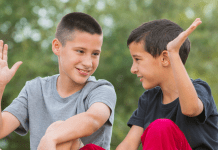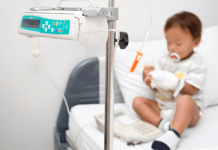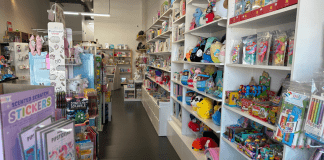Collin County Moms is thrilled to present “Honest Moms,” a series on authentic, vulnerable looks at motherhood and life in general: the good, the bad, and the ugly—what we love, what we struggle with, and what we are working through—all as a way to connect with YOU. We want to know what you’re going through, what encourages you, what helps in the times of confusion, chaos, and solitude. We are all in this together, and our community is a strong one that seeks to lift others up.
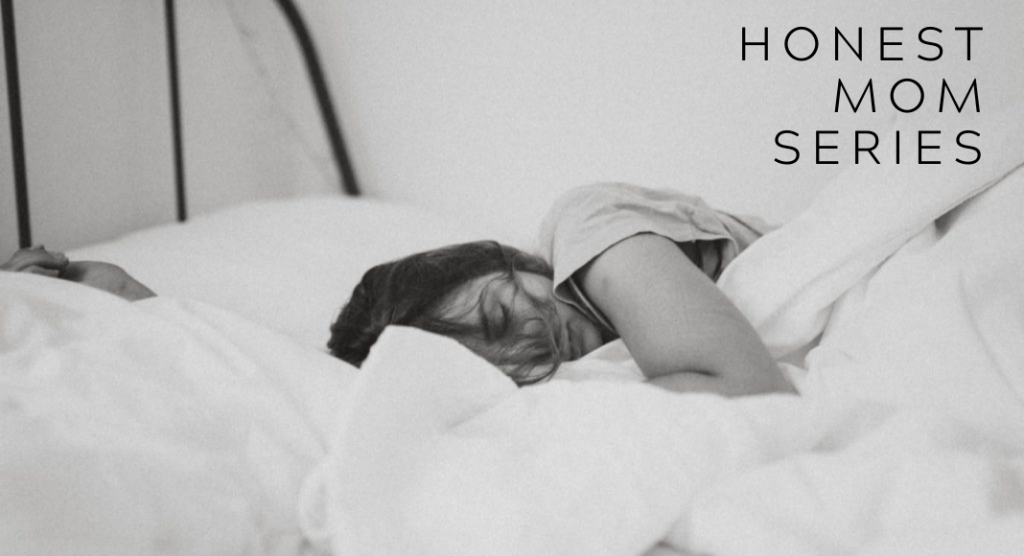 From November to March of every year, we don’t leave our house as a family. No, that’s not an exaggeration. If we go anywhere, it’s to the grocery store, but now that I’ve discovered Subscribe & Save on Amazon, even those trips are rare. But when we do find ourselves needing to go to the grocery store (either to save my sanity from going stir-crazy or because we actually do need chicken nuggets and mac & cheese), we have a routine.
From November to March of every year, we don’t leave our house as a family. No, that’s not an exaggeration. If we go anywhere, it’s to the grocery store, but now that I’ve discovered Subscribe & Save on Amazon, even those trips are rare. But when we do find ourselves needing to go to the grocery store (either to save my sanity from going stir-crazy or because we actually do need chicken nuggets and mac & cheese), we have a routine.
First, I scope out the parking lot, making sure that the store doesn’t look super packed. Then we grab a remote spot towards the back of the parking lot. Braving the cold, I pull out my ever-present pack of antibacterial wipes to scrub the cart before putting the cart cover on the basket. Then, and only then, will I put my almost 4-year-old son in the basket.
It’s all for his protection.
My firstborn, Roman, is considered medically fragile. He was born at 27 weeks at 1 pound, 11 ounces. And while medical technology has advanced to the point of working many miracles, my son’s 292-day hospital stay was filled with hard-won ups and lots of very scary lows.
After his second bout of pneumonia at four months old, the neonatologist at Medical City Plano looked at me and said, “Roman has what’s called Bronchopulmonary Dysplasia. Basically, it’s just another way of saying he has bad ‘preemie lungs’. But he’ll grow out of it by age two or so.”
The doctor, one of my favorites on the unit, always had a smile, and he worked many miracles for my son over the course of his stay there.
 But he was only half right.
But he was only half right.
My son’s lung disease — the scarring and chronic inflammation that resulted from being on prolonged ventilator use at high settings — progressed to the point that he eventually needed a tracheostomy, 24-7 ventilator support, oxygen around the clock, and a permanent feeding tube in his stomach to provide nutrition due to the fact that he couldn’t eat by mouth.
And while he did ultimately get better over the past few years — coming off the home ventilator, getting the trach out, only needing oxygen at night and for naps — he never could really shake the lung disease.
Thus, the need for extra-diligent precautions, including our self-imposed wintertime lockdown.
To the casual reader, it may seem like overkill, but here’s the fact: Normal childhood viruses, like the common cold, flu, and RSV, are harder on my child. To date, even without a trach, we’ve never been able to stay home when he gets a common cold. More often than not, we end up at Children’s Plano and admitted for a minimum of two days before they’ll let us come home.
And this October, after starting school, he came down with RSV. RSV stands for Respiratory Syncytial Virus, a super common respiratory virus that most kids, healthy or otherwise, get before the age of two. In most healthy children and adults, the symptoms of RSV are mild, and usually include a runny nose, fever, and persistent cough.
In immune-compromised patients, the elderly, or the very young, RSV can be very tough to fight, and can also lead to hospitalizations.
For Roman, that RSV infection resulted in two ER visits and the diagnosis of respiratory failure. We spent nine days in the PICU at Medical City Children’s Hospital.
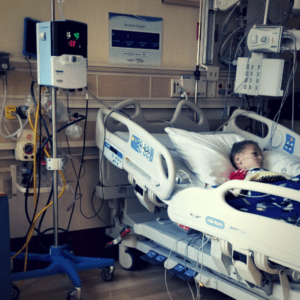
So, yes. While it may seem like overkill to stay home for several months at a time, the alternative is much worse. I count down the weeks until I’m able to spend time outside when people are less likely to get sick and the worst thing we have to worry about is seasonal allergies.
Sure, I get jealous sometimes. I see friends whose kids go to school every day, go on play dates, and sit on Santa’s lap (something that we’ve never done) without seeming to miss a beat. When their kids get sick, they’re down for a few days, but then they bounce back. Easy-peasy.
But I remember that one day, with careful, measured exposure, we’ll be able to take some risks. Right now, other people’s germs are simply too big for him.
So for now, I’ll hold out hope that next winter will be different. That he’ll be stronger, and more able to handle normal childhood illnesses. That people will stop going places when they’re sick, and adopt universal precautions to help prevent the spread of diseases that can, and often do, kill kids like my son.
But until then, we’ll stay home and (maybe) try again next year.







